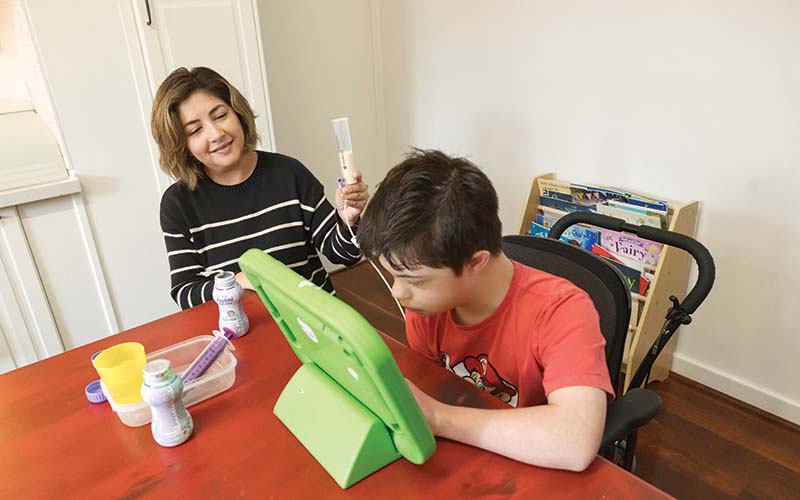Search

For thousands of children around Australia with intellectual and other disabilities, the process of eating can be traumatic, posing challenges that veer from uncomfortable to life threatening.

News & Events
Major grants fuel child health researchSix researchers from The Kids Research Institute Australia have been awarded $8.9 million in prestigious Investigator Grants from the National Health and Medical Research Council.
Research
The role of childhood illness in shaping relationships through to young adulthoodTo explore how those with a physical illness in childhood are managing in relationships across childhood to young adulthood.
Research
The global, regional, and national burden of cancer, 1990–2023, with forecasts to 2050: a systematic analysis for the Global Burden of Disease Study 2023Cancer is a leading cause of death globally. Accurate cancer burden information is crucial for policy planning, but many countries do not have up-to-date cancer surveillance data. To inform global cancer-control efforts, we used the Global Burden of Diseases, Injuries, and Risk Factors Study (GBD) 2023 framework to generate and analyse estimates of cancer burden for 47 cancer types or groupings by age, sex, and 204 countries and territories from 1990 to 2023, cancer burden attributable to selected risk factors from 1990 to 2023, and forecasted cancer burden up to 2050.
Research
Real-world benefits and tolerability of trofinetide for the treatment of Rett syndrome: The LOTUS studyAim: To describe the real-world effects of trofinetide in individuals with Rett syndrome (RTT) using the 18-month follow-up analysis of the LOTUS study.
Research
Online Health Literacy Resources for People With Intellectual Disability: A Grey Literature Scoping ReviewPeople with intellectual disability experience higher rates of physical and mental health problems than those without intellectual disability. Health literacy includes accessing, understanding, appraising and applying health information. Improving health literacy is associated with better health outcomes. The internet is a primary source of health information for many people. This study aimed to evaluate available online health resources for people with intellectual disability and their families to understand information gaps.
Research
Intrafamilial Maltreatment of People with Intellectual Disability: A Scoping ReviewPeople with intellectual disability experience a greater risk of maltreatment than people without intellectual disability. Maltreatment by family members presents additional risks, including greater possibilities for concealment. This scoping reviewResults were summarized in both narrative and tabular formats summarizes extant knowledge about the familial maltreatment of people with intellectual disability and identifies gaps in the literature.
Research
Unpacking the “black box” of safe respiratory physiotherapy interventions delivered in the home for children with cerebral palsy and medical complexityDescribe the physiotherapy interventions provided to children with cerebral palsy at risk of respiratory illness and determine criteria for safe in-home treatment.
Research
Longitudinal observational research study: establishing the Australasian Congenital Cytomegalovirus Register (ACMVR)Congenital cytomegalovirus (cCMV) is an important cause of long-term childhood disability. In Australia, the identification and treatment practices and the long-term clinical and neurodevelopmental outcomes of children with cCMV are unknown.
Research
Caregiver-reported meaningful change in functional domains for individuals with developmental and epileptic encephalopathy: A convergent mixed-methods designTo investigate how caregivers of children with developmental and epileptic encephalopathy and severe developmental impairments describe meaningful change for functional domains and why it is important.
